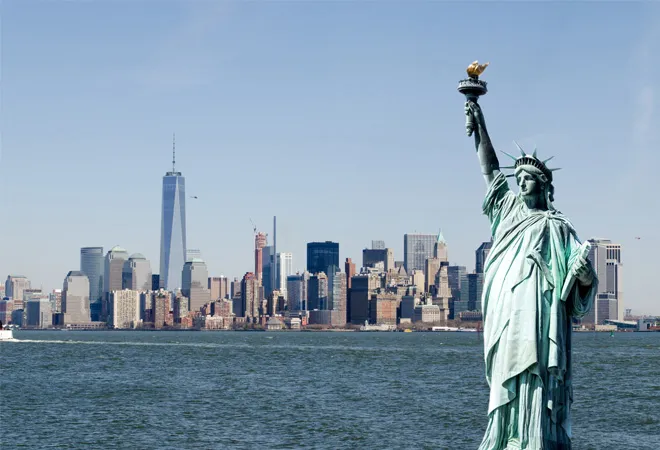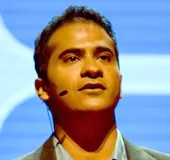
During my journalism days out of Singapore, I was fortunate to interact with some of the most astute policy thinkers. In a conversation with the former foreign minister of Singapore, George Yeo, I asked him a rather off the beaten path question.
It went like this: “they say if you were smart in the 19th century, you would have moved to Britain; after all it was Britain’s century with the Industrial Revolution. If you were smart in the 20th century, you were expected to have moved to America; the post World War II phase saw the age of American innovation and entrepreneurship. Then came the crucial part of my question: In the 21st century, am I expected to move to China?
He remarked that was a good question and instead of replying, the ever-intuitive Mr. Yeo asked me instead what I thought? I said, I didn’t think moving to China was the long-term answer, since there wasn’t a Chinese dream for non-native Chinese speakers.
But there was and still is an American dream for everyone. Anyone can be American. Harvard academic Joseph Nye describes Soft Power as the ability of a country to subtly influence other actors through its culture and non-political institutions. Earlier in November, I was fortunate to interview Nye on the sidelines of the Fletcher MGIMO conference on US-Russia relations and speak to him about soft power.
Nye concurred that perhaps the best example of US soft power happened to be the American Dream. While MTV, McDonalds and Coke are global behemoths and strong examples of US cultural soft power, the American Dream truly epitomizes US soft power.
The American Dream was based on an idea, philosophy and belief that anyone, irrespective of their background, faith, cultural leanings, could come to the US and reap the benefits of American prosperity if they had the desire, drive and the will to work hard. While many would say this sounds like a stump speech from Obama’s campaign trail from 2008, but the American Dream still continues to resonate among many immigrants.
America has often been referred to as the land of immigrants and emphasised even more on this campaign trail amid the heated political rhetoric against immigration. The discourse around the American Dream is prevalent and pertinent since many argue that under a more bellicose administration that espouses tightening immigration norms, the American Dream seems to be on its last leg. There is merit to this argument as well, including the fact that the US economy has continued to struggle since the recession of 2008. With increasing globalisation, economic wealth and prosperity has been pervasive in many parts of the world, that many may wonder if ‘America is still that shining city on the hill’.
However, I would argue that there is more merit to the American Dream that cannot be tangible through quantitative data. After all, the American Dream is a qualitative feeling. Even though the H-1B visa lottery system continues to be hard on working professionals and the Green Card backlog has only increased, the US still resonates as the foremost destination for immigrants all around the globe.
An immigrant to the US could be from Sichuan in China, Incheon in Korea, Coimbatore in India or from Havana in Cuba, steeped in their own cultural identity. However, the next generation, their kids will likely be homogenised to follow Tom Brady playing for the New England Patriots in the NFL; cheering for LeBron James and his beloved Cleveland Cavaliers in the NBA; and watching the latest George Clooney Hollywood blockbusters, while continuing to speak in a standard American accent. This isn’t to say that America takes away all unique identities, but instead it blends them together in a form of “Americanness” like no other place.
In fact, it was this unique perspective of anyone being American, that as soon I addressed my question, Yeo, a leading manager in Deloitte in Singapore, remarked to me “that despite the fluent Mandarin that I speak, I can never be Chinese. But anyone can be American”.
Few countries can speak about diversity of its citizens in the foreign service and its political chambers on the hill and across the country. Through various government initiatives such as Peace Corps, the Fulbright program and USAID, the US has been able to craft a robust soft power image far beyond its militaristic sophistication.
Legendary investor Warren Buffet once said that all good things happened to him because he and his fellow Berkshire Hathaway co-founder, Charlie Munger, were born in the right country at the right time.
Very few have been able to replicate the success story of entrepreneurs, innovators, actors, musicians, comedians in the same length the way the United States has. In one of my interviews, with one of the ministers overseeing technology and innovation in Singapore, he remarked about how Singapore would be the next Silicon Valley. While, Singapore is making leaps and strides as a sophisticated technological hub, it’s important to remember that what makes Silicon Valley unique is the fact that there was no government mandated plan to create the likes of Google, Apple and Facebook. The growth and innovation in Silicon Valley has been organic. Similar to Silicon Valley, Hollywood, Madison Avenue and even Wall Street are not just mere geographic zip code areas, but instead the fount of new ideas and industries that have changed the world as we know it.
The American Dream too is no government mandated policy. It’s an organic belief and feeling that has driven many to embark on the journey of being American.
I had the privilege of sharing the TEDxNTU stage in Singapore with economist Danny Quah, who shared in his brilliant talk that even if China is the second largest economy, the US has such a good story that it can’t be displaced from the totem pole of countries that the rest of the world aspires to become.
Danny Quah also brilliantly adds that we won’t be seeing a “Marry me for Chinese Citizenship”, anytime soon!
The views expressed above belong to the author(s). ORF research and analyses now available on Telegram! Click here to access our curated content — blogs, longforms and interviews.




 PREV
PREV


